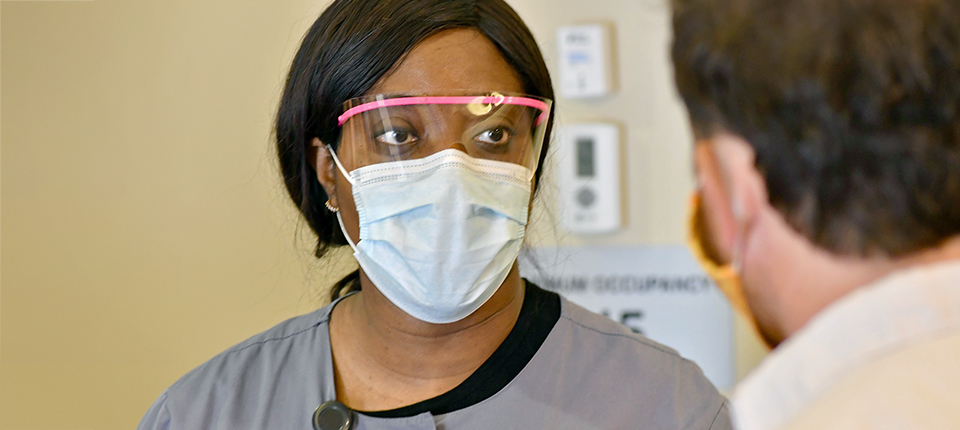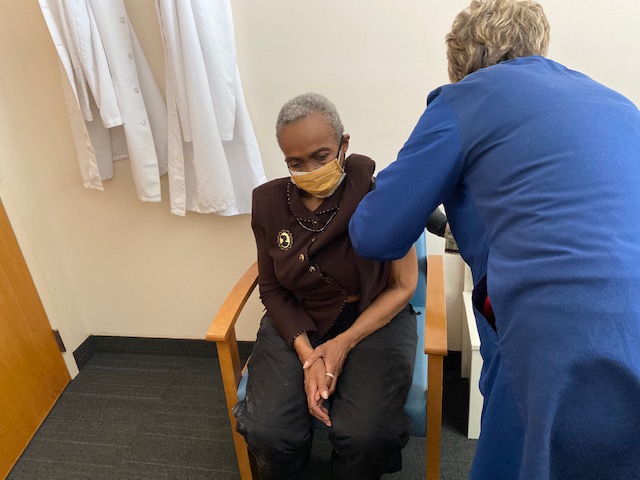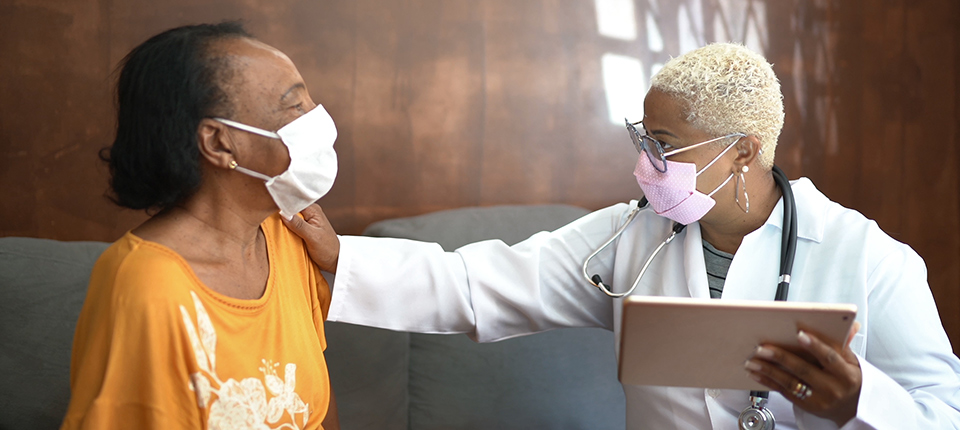
Building Trust and Improving Care
Partnership with the University of Minnesota Community University Health Care Center brings care closer to underserved communities.
July 08, 2021
- Copy Link
- Share on X
- Share on Facebook
- Share on Linkedin
Build it, and they will come. But, will they really?
Sometimes, the challenge of ensuring vulnerable communities get the healthcare they need goes beyond just access and affordability. It's about truly understanding the community you're serving and going the extra mile to meet them in settings where they're most comfortable.
Communities of color, immigrants and refugees experience myriad socioeconomic, cultural, language and other barriers to care. And consequently, they bear a disproportionate burden of disease. And ironically, well-intentioned as they may be, some healthcare clinics attempting to address this problem can actually add more barriers. By entering a community without understanding local contexts or making inaccurate assumptions, residents may see certain actions as intrusive and shy away from these programs.
Ms. Jewelean Jackson knows well the struggles of both community members and the healthcare centers trying to serve them. As a 73-year-old Black Minnesota resident and former board chair of the University of Minnesota Community University Health Care Center (CUHCC), Ms. Jackson's perspective is unique, having been a member of the healthcare center and a patient herself. She's seen firsthand the reluctance, for example, of the Black community to be vaccinated against COVID-19, due largely to a distrust of the healthcare system.
"I often have to act as a cultural broker between the communities I serve and the people who have a proverbial seat at the table, because I understand both sides," said Ms. Jackson. "As healthcare providers, we need to infuse cultural sensitivity into our services, ensure patients can get care where they are most comfortable, and provide the necessary education that helps bridge the gap between 'we know best' and 'we're here to serve you.' CUHCC understands that you need to put patients in the driver's seat."
CUHCC is dedicated to breaking down these barriers, building trust and creating a healthier community. Abbott has partnered with CUHCC to help deliver health care outside the clinic walls, meeting people where they live and gather. With grant funding from the Abbott Fund, their mobile clinic has provided COVID-19 testing and vaccinations, conducted chronic disease screening and treatment for hypertension and diabetes, and established a virtual care model — all while keeping patients and their individual needs at the center.
With the grant, the clinic was also able to hire a new mobile health program director – Opeyemi (Opy) Adesida. Previously a physician in Nigeria working in mobile pop-up clinics, Adesida also emphasizes the importance of having a full understanding of a community's diverse population and needs when providing care.
"I've seen firsthand the impact of building trust with a community, mobilizing health care and decreasing barriers to address economic disadvantages and health disparities," said Adesida. "These mobile clinics give us new and effective ways to continue engaging those with the highest needs while also lowering barriers to providing care."
The CUHCC mobile clinic and Adesida are working with key community partners to address specific outreach and care needs of the most vulnerable and underserved populations. These partnerships allow the clinic to reach more patients, link them to existing resources and deliver preventive and culturally appropriate care and services, such as:
- Recording a video in Spanish with a CUHCC provider to share information around the safety of the COVID-19 vaccine for the Latino community;
- Organizing a mobile vaccination event at Masjid Rawdah (Somali Cultural Institute) in preparation for the month-long celebration of Ramadan; and
- Providing health education and transportation to CUHCC to encourage minority groups to get vaccinated.
- Hosting a special vaccination event for 17 Somali Imams (religious leaders in the Muslim faith) from across Minnesota.
With the Abbott Fund's support, CUHCC has distributed almost 100 blood pressure home kits, provided more than 5,200 COVID-19 vaccine doses, and administered more than 2,100 COVID-19 tests to those who might not have otherwise sought care. We're encouraged by the success of this partnership, which exemplifies Abbott's ongoing commitment to health equity.

Ms. Jackson receives her COVID-19 vaccine as part of CUHCC's community outreach efforts.
For more information about Abbott's work to advance health equity in the U.S., click here. We also have longstanding, significant work in other countries around the world – you can find out more and see examples at Abbott.com/sustainability, and also on the Social Impact section of our site.
Related articles
-
Sustainability
Breaking down barriers, advancing health equity
We're working across our business and in partnership with others to help more people get the care they need.
For the latest on Abbott’s life-changing technology, get updates directly in your inbox.
